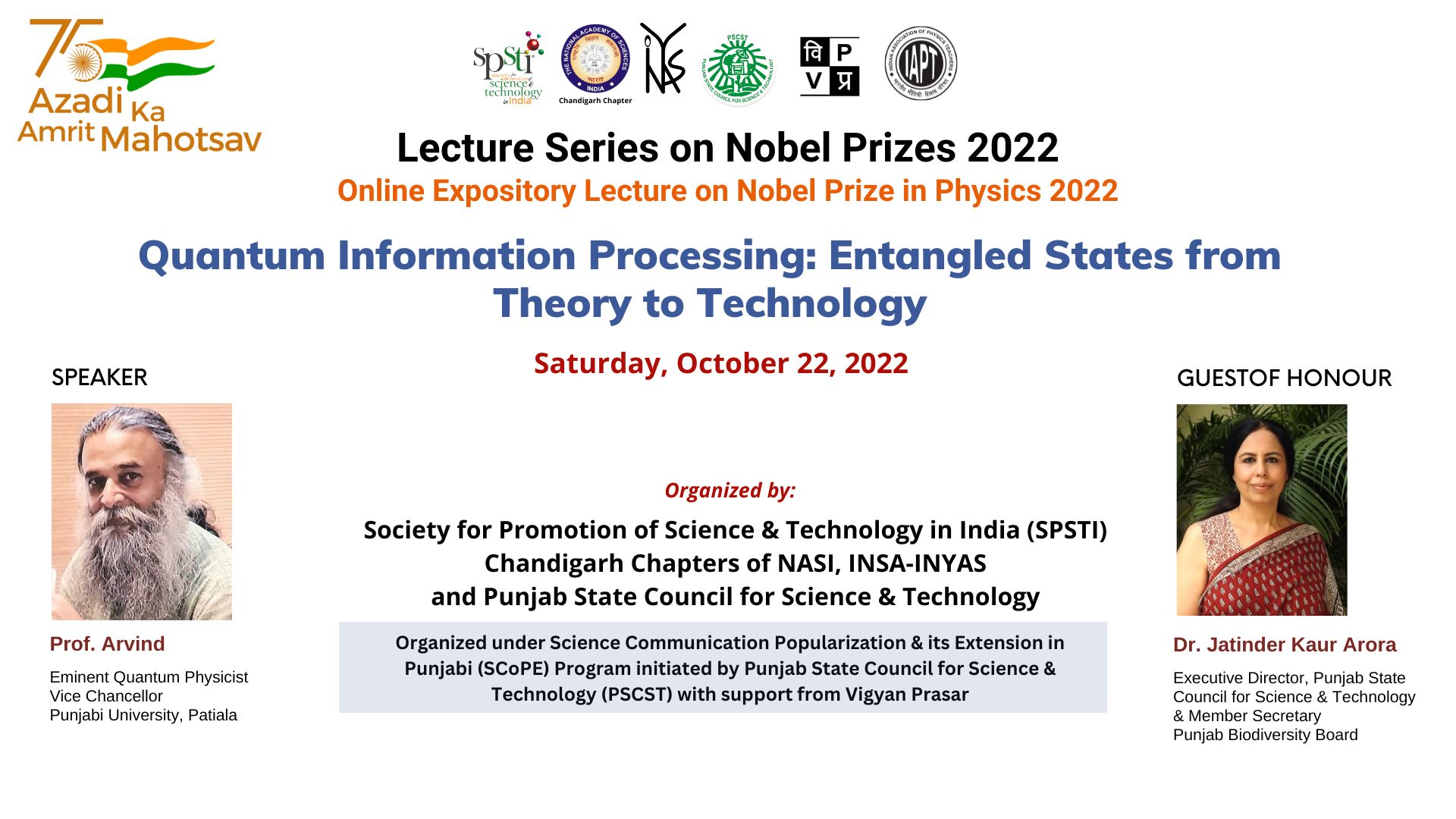The Society for Promotion of Science & Technology in India (SPSTI) has initiated its one of the annual programs ‘Awareness Lectures on Nobel Prizes’.
The lectures series on Nobel Prizes 2022 is being organized in association with Chandigarh Chapters of National Academy of Sciences India (NASI), Indian National Young Academy of Sciences (INYAS-INSA), Indian Association of Physics Teachers (IAPT) and Punjab State Council for Science & Technology (PSCST).
The first lecture in this series would be held on October 22, 2022 at 11:00 AM. The expository lecture will be delivered on Nobel Prize in Physics 2022 by Prof. Arvind, an Eminent Quantum Physicist and Vice Chancellor, Punjabi University. The Speaker will deliver this lecture in vernacular to facilitate its easier comprehension by Hindi & Punjabi speaking students.
The Guest of Honour in this event will be Dr. Jatinder Kaur Arora, Executive Director, PSCST & Member Secretary, Punjab Biodiversity Board, Govt. of Punjab.
This lecture is being organized under the ‘Science Communication Popularization & it’s Extension (SCoPE) in Punjabi, initiated by Punjab State Council for Science & Technology with support from Vigyan Prasar.
Citation for Nobel Prize in Physics 2022
The Royal Swedish Academy of Sciences has decided to award the Nobel Prize in Physics 2022 to Alain Aspect from France, John F. Clauser from USA and Anton Zeilinger from Austria “for experiments with entangled photons, establishing the violation of Bell inequalities and pioneering quantum information science”. They have conducted groundbreaking experiments using entangled quantum states, where two particles behave like a single unit even when they are separated. Their results have cleared the way for new technology based upon quantum information. There is now a large field of research that includes quantum computers, quantum networks and secure quantum encrypted communication. One key factor in this development is how quantum mechanics allows two or more particles to exist in what is called an entangled state. What happens to one of the particles in an entangled pair determines what happens to the other particle, even if they are far apart.

